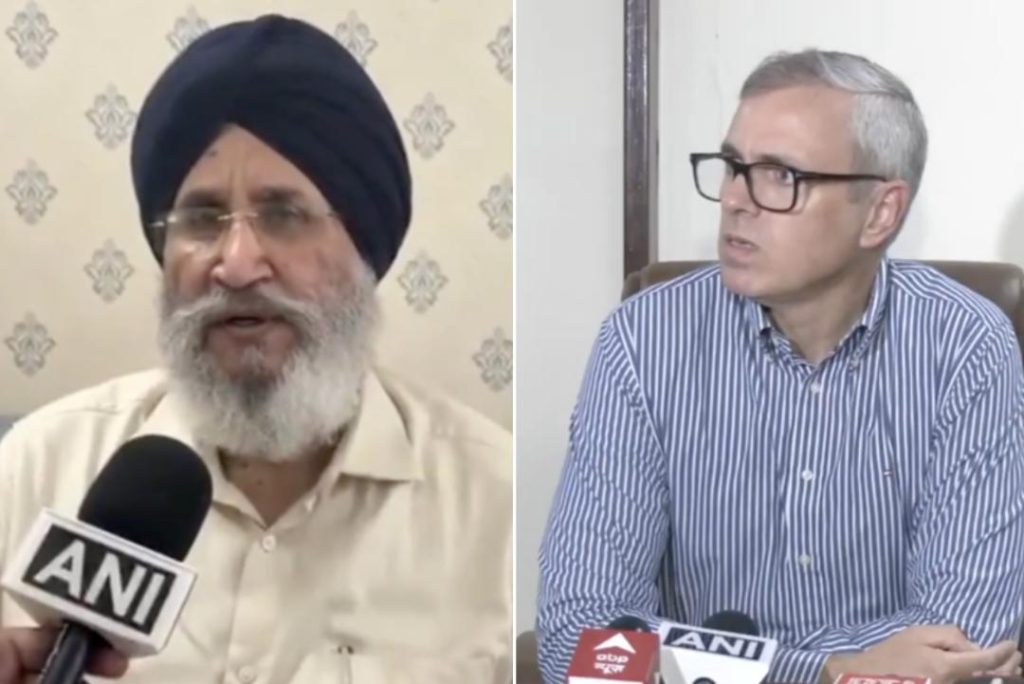
J&K CM’s Remark on Water Sharing Unreasonable: Akali Dal Leader
The ongoing debate over water sharing between Jammu and Kashmir and Punjab has taken a new turn with J&K Chief Minister Omar Abdullah’s statement that he will not share any water with Punjab. However, the Shiromani Akali Dal leader Daljit Singh Cheema has termed Abdullah’s remark as “unreasonable” and “unjustified”.
Abdullah’s statement came in response to the Punjab government’s demand for a fair share of water from the Indus Water Treaty. The treaty, signed in 1960, divides the water of the Indus River and its tributaries between India and Pakistan. Punjab has been demanding a fair share of water, citing the fact that the state has been hosting thousands of refugees from Pakistan-occupied Kashmir.
Cheema, who is also a former Punjab cabinet minister, said that Abdullah’s remark was unexpected and unjustified. “We did not expect him to comment on Punjab, as river water distribution has earlier also been in favour of other states like Rajasthan, Haryana and Delhi,” he said. He added that the J&K government should focus on resolving the issue of water scarcity in the state rather than making unreasonable demands.
The Akali Dal leader also pointed out that the J&K government has been receiving more water from the Indus Water Treaty than Punjab. “Jammu and Kashmir has been receiving 86% of the water from the Indus River, while Punjab has been getting only 14%. This is not a fair distribution of water,” he said.
Cheema also questioned the J&K government’s claim that it will not share any water with Punjab. “If Jammu and Kashmir is not willing to share water with Punjab, then it means that they are not willing to follow the Indus Water Treaty,” he said.
The Akali Dal leader also appealed to the Centre to intervene in the matter and ensure that the water of the Indus River is distributed fairly among all states. “The Centre should take immediate action to resolve the issue and ensure that the water of the Indus River is distributed fairly among all states,” he said.
Abdullah’s statement has sparked a controversy in the region, with many arguing that it is unfair to Punjab. The Punjab government has already announced that it will approach the Supreme Court to seek a fair share of water from the Indus Water Treaty.
The Akali Dal leader’s comments have also been welcomed by the Punjab Congress, which has been demanding a fair share of water from the Indus Water Treaty. “The J&K Chief Minister’s statement is unjustified and unreasonable. We will continue to fight for a fair share of water from the Indus Water Treaty,” said Punjab Congress leader, Ambika Soni.
The dispute over water sharing between Jammu and Kashmir and Punjab is not a new issue. The two states have been at loggerheads over the issue for many years, with each side accusing the other of not following the Indus Water Treaty.
The Indus Water Treaty was signed in 1960 by India and Pakistan to divide the water of the Indus River and its tributaries. The treaty allocates 80% of the water to Pakistan and 20% to India. However, the treaty also allows India to use the water of the Indus River for irrigation and other purposes, which has led to tensions between the two countries.
The dispute over water sharing between Jammu and Kashmir and Punjab has also been exacerbated by the fact that the two states have different irrigation systems. Jammu and Kashmir has a canal-based irrigation system, while Punjab has a canal-free irrigation system.
In conclusion, the Akali Dal leader’s comments on J&K CM’s remark on water sharing are a timely reminder of the need to resolve the issue of water scarcity in the region. The J&K government should focus on resolving the issue of water scarcity in the state rather than making unreasonable demands. The Centre should also intervene in the matter and ensure that the water of the Indus River is distributed fairly among all states.






